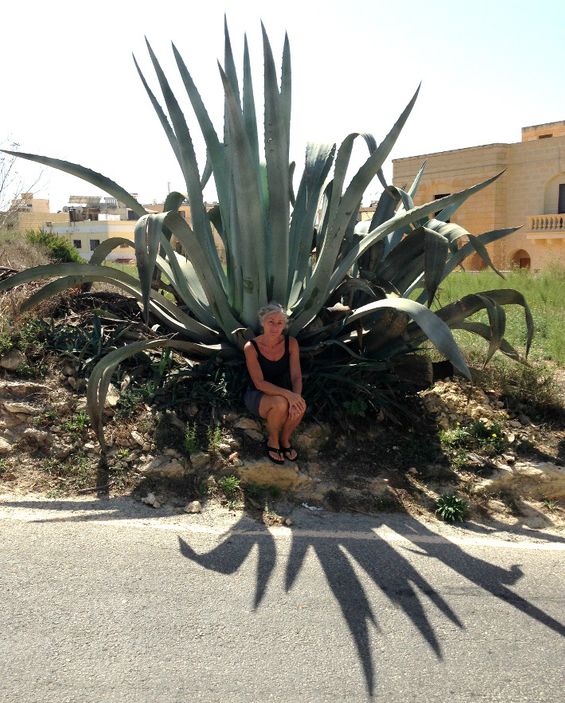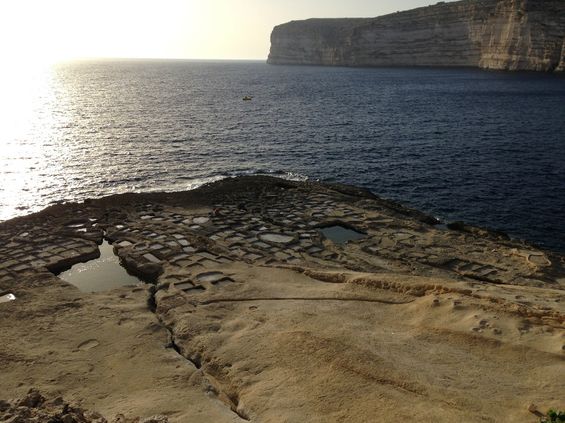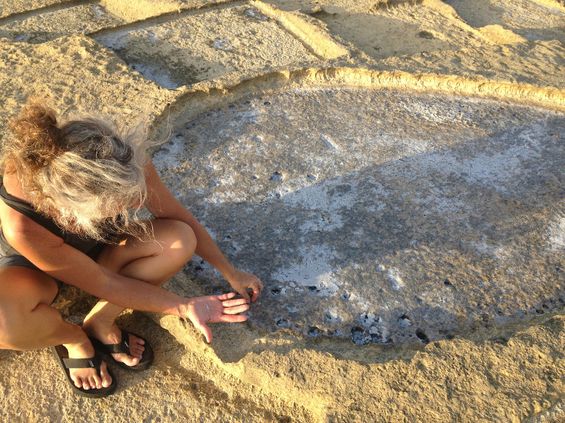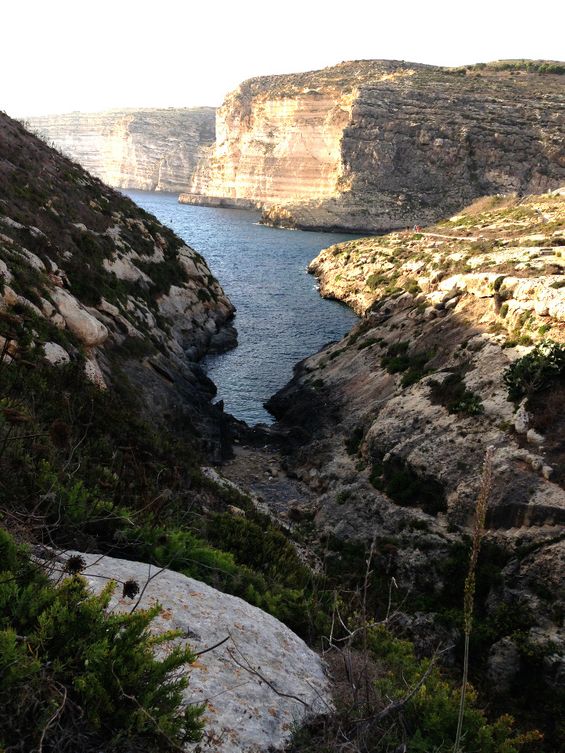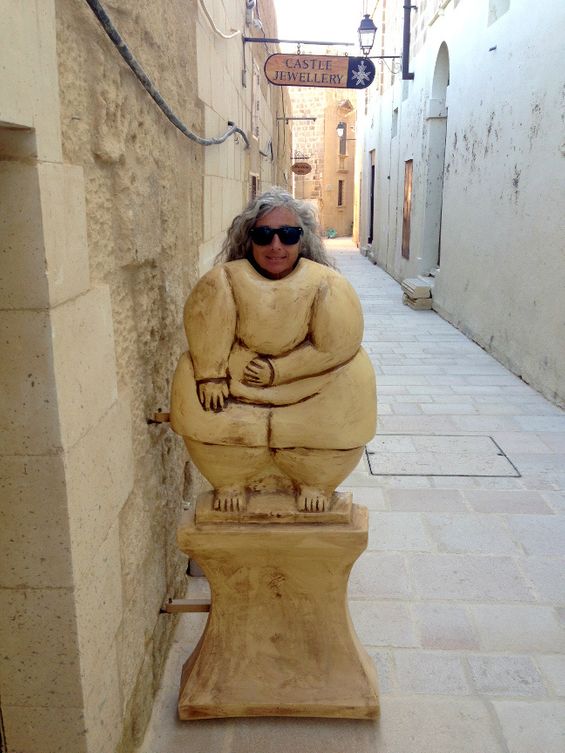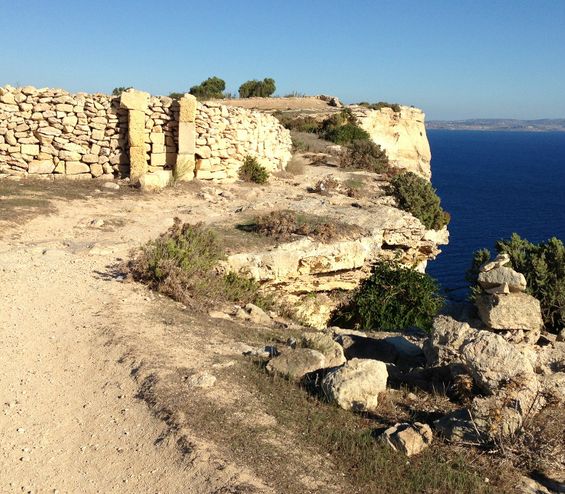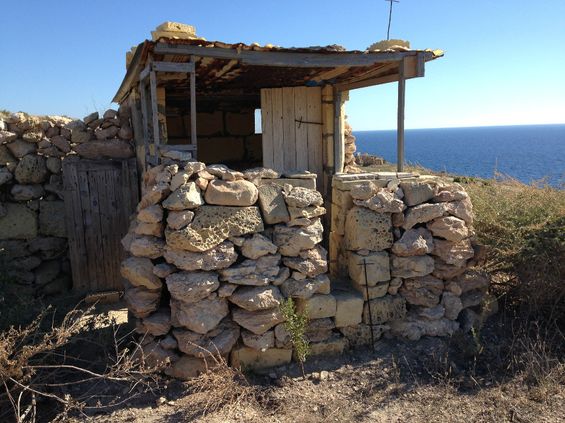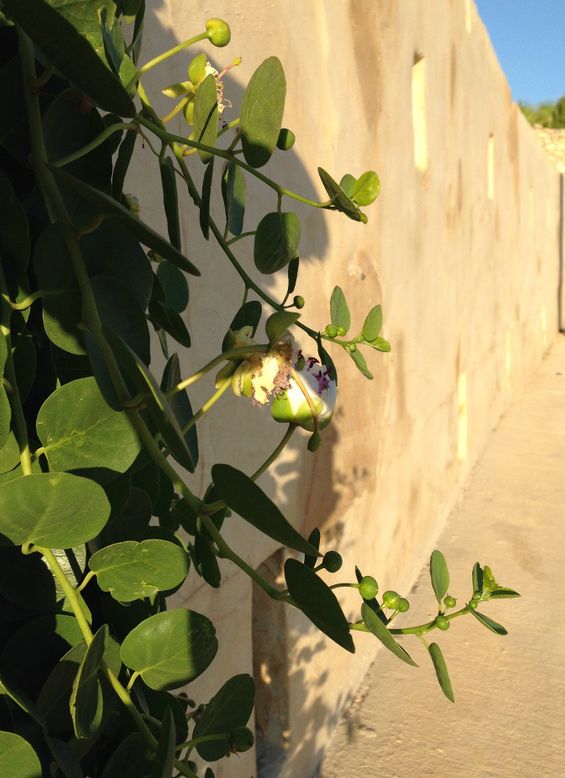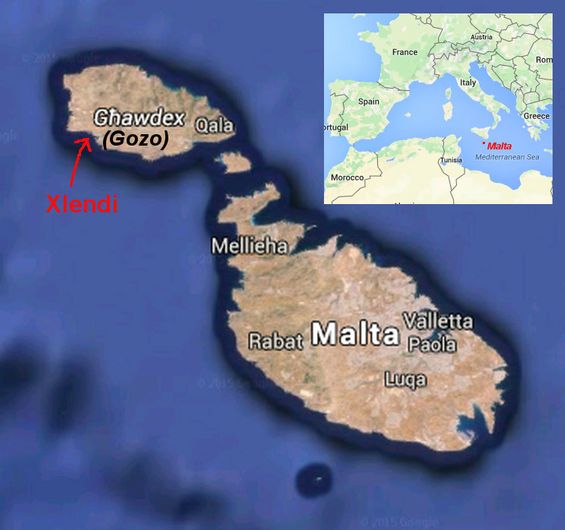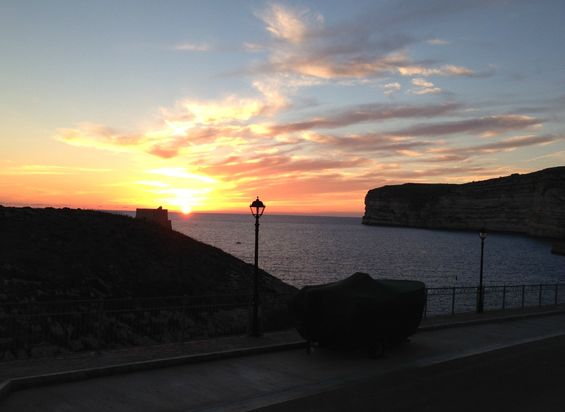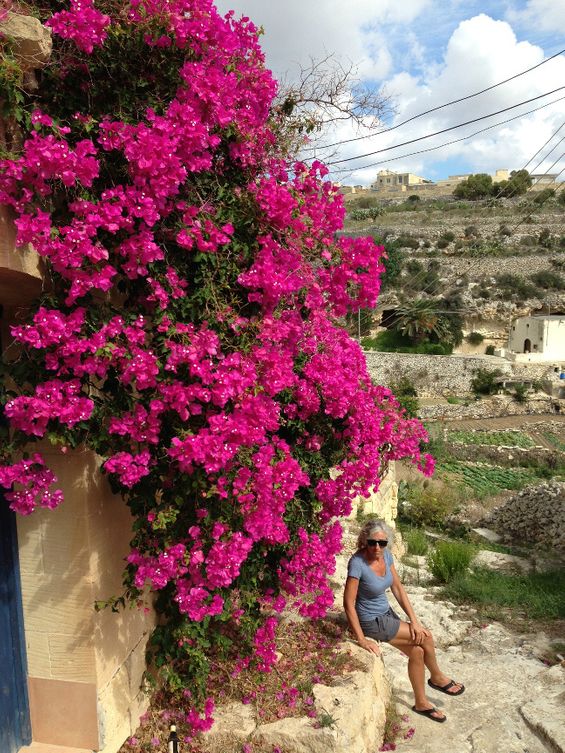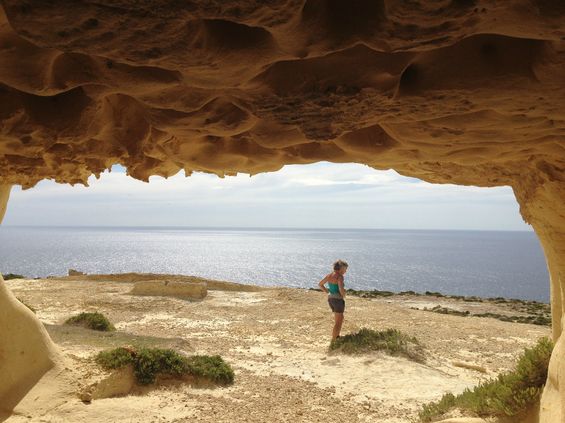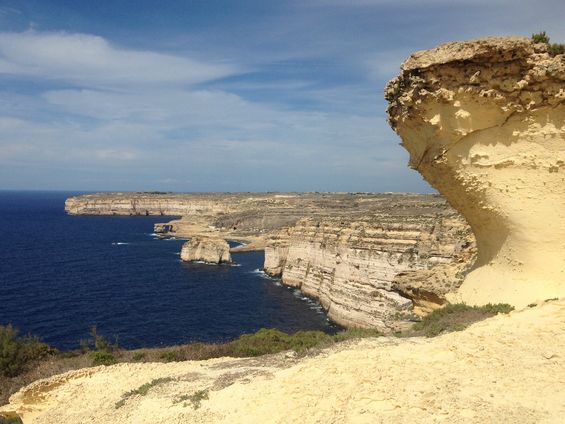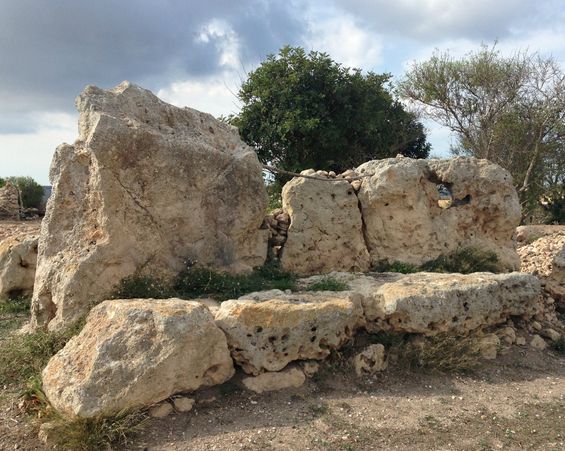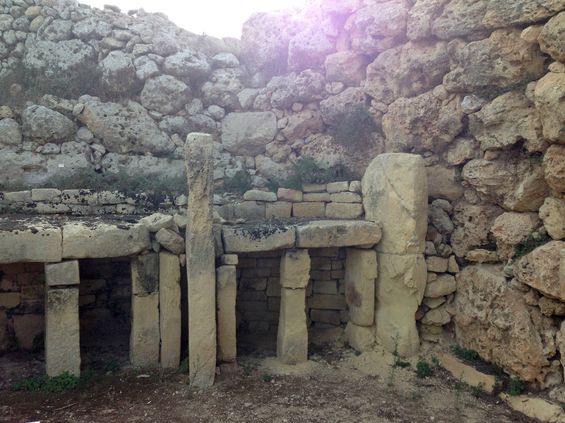Part V: Malta 2015
One of our former neighbours asked for a list of tips for travelling like we're doing, so here it is:
Gypsy Tips - Meaningful Travel on a Moderate Budget
* If you are interested in more meaningful, non-touristy travel, very early in your planning (at least 6-12 months in advance) spend some serious time in self-reflection and clarify the purpose for your travels. It can be anything important to you: enlightenment, self-discovery, experiencing ancient civilizations, reclaiming closeness to nature, understanding roots… there are dozens of reasons with enough substance to provide a framework for life-changing travel. To stay sane and on track during your travels, remind yourself regularly of that reason. It’s a big world full of distractions and it’s easy to lose balance and feel overwhelmed on long journeys, so protect yourself by finding quiet time every day. A regular practice of meditation and/or yoga while travelling is invaluable.
* Use guide books early in your planning and start reading/skimming them cover-to-cover at least six months before your trip. Lonely Planet, Moon Books, Bradt Guides, and some other brands provide excellent resources. These guides can lead you to out-of-the-way places and more personalized accommodations, help you save lots of money, minimize uncertainty, and let you focus on the experience with minimal logistical worries. Books are heavy - tear out the pages you won't need, or just take the section of the book that will use.
* Learn some of the local language before you go. At a minimum, take a small pocket-sized phrase book and carry it with you all the time. People will wait while you look up a critical word, and will appreciate the effort. The first word to learn is the local 'thank-you'. Use it at the end of every interaction. You'll be amazed at the amount of good will that will generate and how much it will enhance your trip.
* Stay for one to three months in any area, and take day trips or overnighters out and around the locality. This gives enough time to experience something a lot closer to being a ‘local’, and it dramatically lowers accommodation costs. Most landlords and hoteliers will negotiate much lower rates for longer stays. Look for daily accommodation rates that are around twice your accommodation budget, and negotiate a rate (at least half off) that matches your budget.
* Look for small towns or areas that are considered backpacker-friendly. There are usually guest houses and B&B’s in these areas which are comfortable and quiet and don’t have the tourist crush. Always try to find accommodation with at least minimal cooking facilities.
* Travel very light. Excellent backpacks or small sturdy suitcases are readily available - aim for 10 kg or less per person, fully loaded. You don’t need to start with anything more than traveller-sized toiletries and a few sets of casual clothes, because anything else you need will be available virtually anywhere you travel. Laundromats are easy to find and doing the laundry every few days gives you something to build a day around. Tasks like laundry and ‘small shopping’ (a few pieces of fruit, a t-shirt, toothpaste, some necessary gadget) are a great way to explore and give you a reason to interact with local people.
* Good walking shoes are essential, and a second pair of sandals or flip-flops is all the footwear you will ever need. Walk every day and explore the local area. Shop in outdoor markets, go out for coffee, and often just hang out and watch the world go by.
* If you are taking electronics, think about what you’ll really need. Wifi is readily available almost everywhere now, but the point of meaningful travel is to get away from the virtual world and discover the real world. A phone with camera that won’t cause you tears if you lose it or drop it in the ocean is useful, but get your phone ‘unlocked’ before you leave. This will allow you to use local SIM cards which are almost always much cheaper than the ‘roaming plans’ from your regular cell phone service provider. There are always lots of local vendors willing to sell you pay-as-you-go phone plans – ask around for advice from your accommodation people or other travellers to avoid overpaying, and go for small charges which you can top up. If you’re not travelling for more than a couple of months you likely don’t need a tablet or laptop, besides the fact that that they’re heavy and cause you worry about losing them. If you need to get online or send an email, internet café’s are plentiful almost everywhere and are a good, cheap and worry-free alternative.
* If you are using a smaller local internet provider at your home that may result in accessibility issues outside the country, a good addition is a Gmail account set up before you leave. Gmail works well almost everywhere on the planet. It also gives you access to Google Drive, which is free storage space on the Google cloud. Make up a few doc’s or pdf’s with the emergency information you might need if you lose everything (bank info, contacts, electronic airline tickets, passport photo page and visas). Password protect these doc’s or pdf’s, and store them on the Google Drive. If you lose your stuff, find an internet cafe' and get what you need to get back on track from Google Drive.
We are now in Malta on the island of Gozo ( pronounced GŌT – zō) in a place called Xlanti (SHLANT – ē). It’s a tiny little village on a rocky inlet. We snorkelled all along the cliff face – it drops down another 4 meters close to the rocks and then gets deeper in the channel.
Malta and Gozo are very rocky, and very dry right now at the end of summer.
Shade...!
Heading to the salt flats.
Salt Flats 1: Depressions are dug into the flats which fill with sea water and then evaporate to allow harvesting of sea salt.
Salt Flats 2: Roxanne collecting sea salt.
Walking back from the salt flats.
Maltese food really goes to the hips! Maybe it’s always been like this – they’ve dug up small ‘fat lady’ statues like this (minus sunglasses, and sometimes the head) from about 3000 BC.
There are amazing hiking trails all over Gozo. Remember to stay away from the edges, ‘though - the drop-off is up to 150 m.
All through the hills there are little sheds where Gozian hunters wait to ambush bunnies! Rabbit is a common (and delicious!) meal here.
The wind and sea takes a toll…
Capers grow wild on Gozo - the flower buds are salted and pickled and show up in a lot of the local meals.
We're on the island of Gozo (Ghawdex, pronounced Ow-Desh in Maltese), in a little village called Xlendi (pronounced Shlen-dee).
Out the window of a little restaurant at dinner time.
Runaway bougainvillea...!
Cave in the limestone hillside on one of our walks.
Sea cliff walk. Off in the distance along the shore is a giant archway called the azure window.
Scattered around the Maltese islands are megaliths from buildings and temples, many over 5500 years old. That's before the pyramids were built...
Whispers from the distant past: the back wall of Ggantija temple (jig-ant-ee-ya, meaning gigantic or 'giantess' from the legends of the giant women who built this), built 3600-3200BC. The walls stood up to 16 m high, and biggest rock here weighs over 50 tons. Inside this outer wall were two (presumed) temples which each had 5 rounded, domed rooms. Not much is really known about who these people were or what they were up to.
Inside one of the rounded rooms. The roofs have all fallen in now and the rooms are empty except for some hearth stones and bench altars, but when this area was rediscovered there were some 'fat lady' statues and other artifacts scattered around.
View off our little balcony at sunset. This page is getting full. Please go to the page Malta: Oct.2015

